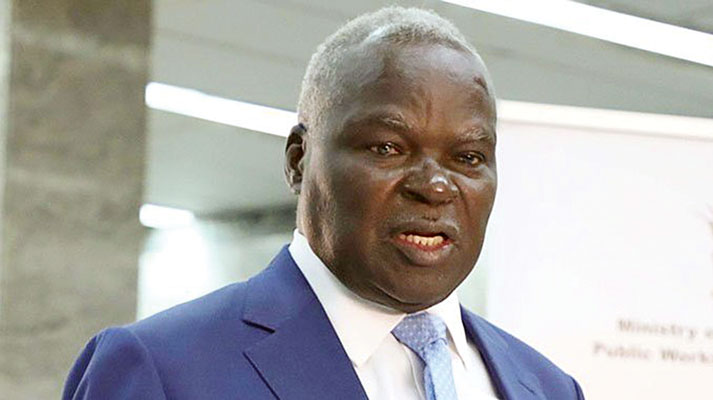
BY TATENDA CHITAGU
The government has dealt a spirited fight by thousands of villagers in Chiredzi to remain in their ancestral lands a heavy blow after gazetting a legal instrument paving the way for their eviction.

Over 12 500 villagers from Chilonga are being forced to make way for a lucerne grass project spearheaded by a dairy producer.
Lucerne grass, also called alfalfa, is used for making hay or animal fodder.
Dendairy, a private milk producer, is said to be eyeing approximately 10 000 hectares of arable land for the lucerne production project meant for local and international markets.
Through statutory instrument 50 of 2021 (Communal Land Setting aside of Land (Chiredzi, notice 2021), published in the Government Gazette on Friday, Local Government minister July Moyo said the land had been reserved for the grass farming project.
“The minister of Local Government, Urban and Rural Development in terms of section 10 of the Communal Land Act (Chapter 20, 04), hereby makes the following notice: This notice may be cited as the communal land (setting aside of land) (Chiredzi) notice, 2021,” reads the notice.
- Chamisa under fire over US$120K donation
- Mavhunga puts DeMbare into Chibuku quarterfinals
- Pension funds bet on Cabora Bassa oilfields
- Councils defy govt fire tender directive
Keep Reading
“The area of land described hereunder in terms of this schedule shall be set aside with effect from the date of publication of this notice for the purpose of lucerne production.
“Any person occupying or using the land specified in the schedule, otherwise than by virtue of a right held in terms of the Mines and Minerals Act (Chapter 21,05), is ordered to depart permanently with all of his or her property from the said land by the date of publication of this notice, unless he or she acquires rights of use of occupation to the said land in terms of section (9) (1) of the Communal Land Act (Chapter (20,04).”
The land that was gazetted is approximately 12 940 hectares.
Villagers had resisted the move, fearing they might suffer the same fate as 3 000 Chivi and Masvingo South villagers that were forced out of their homes during the construction of the Tugwi-Mukosi Dam.
They were dumped in Chingwizi in 2014.
The government neglected the villagers and most of them are living in squalor.
A local civic society organisation committed to the development of socio-economic rights and agrarian systems that enhance equitable land rights and distribution — Masvingo Centre for Research Advocacy and Development (Macrad) — described the looming Chiredzi evictions as ‘disastrous”.
In a paper titled, ‘Forced displacements amongst the indigenous Shangaan people in Chiredzi district’, the organisation said the displacement would disrupt the villagers’ livelihoods, cultural practices and identity.
“The unplanned forced displacements amongst Shangaan people by the Zimbabwean government are disastrous,” Macrad said.
“The unplanned forced evictions will disrupt their livelihoods, cultural practices and identity, indigenous knowledge and their land rights and other general human rights.
“Excluding them from consultations and decision-making subjects them to unprecedented stress and suffering before, during and after the evictions.
“As it stands, there are no possibilities of them coping and adapting well to the state-sponsored evictions.
“More so, there is a likelihood of the outbreak of violent conflicts between the state and the Shangaan people.
“In overall, minority groups have never benefited in most national economic development programmes/projects since the beginning of time worldwide.”
The paper recommended that the government avails alternative land with social amenities and also compensate the villagers.
“In order to reduce levels of vulnerability, the government should properly plan the destination of the affected people prior to enforcement of evictions,” Macrad added.
“Adequate compensation packages should be made available to people of various social conditions and age groups to avoid worsening the already existing social inequalities amongst the victims of forced displacements.
“The government should be guided or observe both domestic and international laws prior to evictions or relocations so that they avoid foregoing the fundamental rights of the minority groups.
“Vulnerable groups such as women, children and those with ill-health should also be given more attention in the planning and execution of development-induced relocations.”
Vice-President Constantino Chiwenga was accused of engineering the evictions after he warned chiefs and headmen against fighting the “new investors” when he toured Chilonga irrigation scheme in Chiredzi last year.










